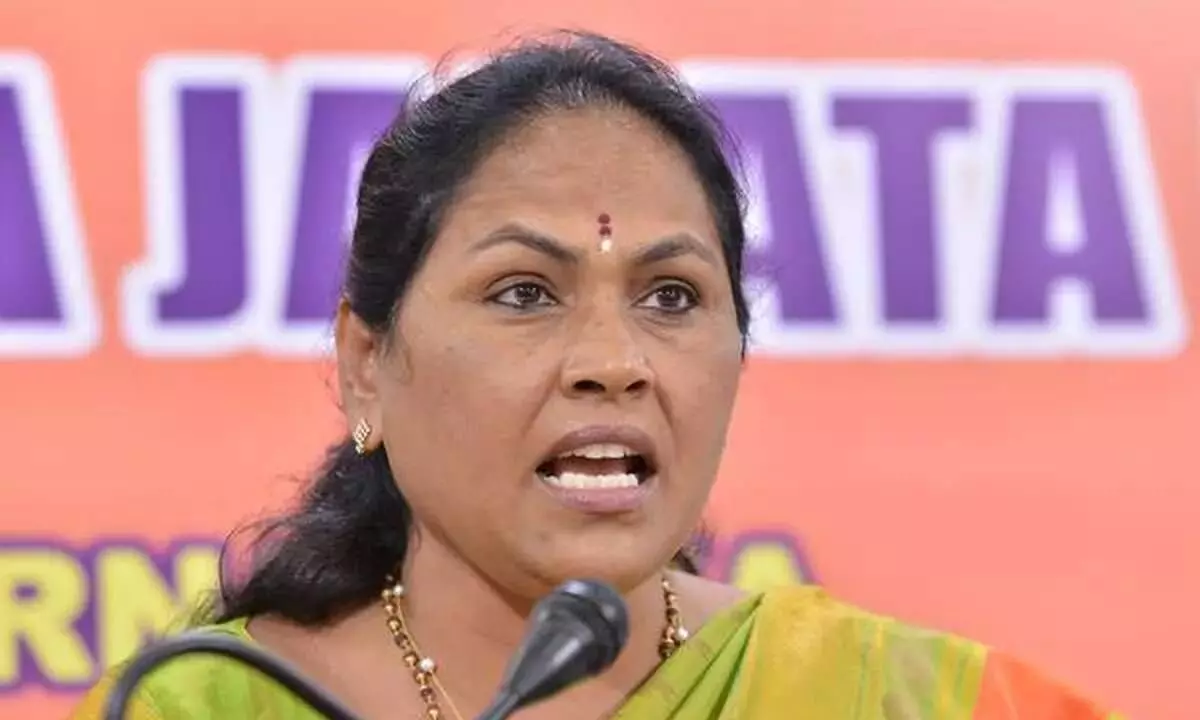‘Global action on climate resilient agri need of hour’
Union minister Shobha Karandlaje urges scientists and researchers to combine efforts for climate resilient farming
image for illustrative purpose

Hyderabad: Union Minister of State for Agriculture and Farmers Welfare Shobha Karandlaje on Monday called upon various stakeholders including scientists, researchers, and policymakers to work closely towards ensuring climate resilient agriculture.
Addressing the inaugural session of the ‘G20 Technical Workshop on Climate Resilient Agriculture’ that began here today, Karandlaje said agriculture is the most sensitive sector and is greatly influenced by climate change that is already affecting G20 nations as the impact on the agricultural field is already being felt.
“Let us work together and call for a global action for climate resilient agriculture and let us forge a path towards a more resilient and sustainable agriculture for the world where the food and nutritional security of the people are ensured,” she said.
Climate literacy and raising awareness about climate resilient practices have to be promoted, both for preparedness and real-time response, Karandlaje said adding scientists should evolve customised programmes for various extremes and for various stakeholders. She stressed on the need for identifying the scalable resilient practices, benefits quantified with socio-economic analysis and to map the niche areas with agro-ecology specific analogous approach, so that they can be shared within and across the G20 member countries.
“Let us encourage and support interdisciplinary research that can lead to breakthroughs in climate resilient agriculture. Web platforms need to be established to connect researchers, exchange data, share communication products and thematic briefs to encourage research in climate resilient agriculture,” she said. India will actively engage with international partners to share knowledge, experiences, and resources to strengthen our capacity to achieve climate resilient agriculture, the Minister said. She further said for agriculture, it is necessary to characterise climate risks at actionable scales.
“The methodologies available with us need to be harmonised for climate risk characterisation and assessment vis-a-vis agriculture”. Later addressing a press conference, the Union Minister said agriculture is a state subject and the central government needs cooperation from states. When asked if they see any hurdles on adopting new technologies and climate resilient practices across the country, Karandlaje said some states to a certain extent do not accept the programmes evolved by the Centre.
“Many states are not cooperating with the Centre. There are hurdles. Despite the hurdles, we are working because farmers are for all and not belong to a single party or a government. Before Rabi and Kharif (seasons), we hold meetings with all states on seeds, on what technologies to be adopted and what to grow. There are meetings of ministers, officials and scientists and but there are some hurdles. Some states accept the programmes while some other rename them,” she asserted.
Department of Agricultural Research and Education (DARE) Secretary and ICAR Director General Himanshu Pathak said in recent years, the frequency of climatic extremes has increased resulting in increased risks to agricultural production and food security all over the world, including India. He emphasised that the efforts of ICAR are very significant in meeting the challenges of climate change.
“We have developed more than 1,800 climate resilient varieties for different crops. We have also developed several crop production technologies -- how to manage water, nutrient and how to manage pest and diseases,” he said. But in times to come, climatic extremes are going to intensify and also become more and more frequent, he said. To address such problems, global collaboration for sustainable solutions is needed, he stressed. “We need better collaboration, better research, better technologies, better insurance so that all these extreme events which are going to intensify in coming years and decades, we will be able to address. For that, the G20 platform is very significant,” he pointed out.
In the last four to five years, Pathak said ICAR has developed more than 50 varieties of different millets in which productivity can be increased by around 15 to 20 per cent and now promoting those varieties with the
farmers.

